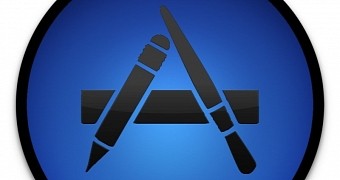This week Apple has been more about car rumors and less about software. Just a handful of updates were dished out this time around, mostly targeting only registered developers.
To give you a quick rundown, Apple this week offers the very first beta of iOS 8.3, a new and improved Swift language, and an updated Xcode for coding iOS and OS X software. iWork for iCloud also got a brief update this week, and is now available for all kinds of platforms.
iOS 8.3 beta (build 12F5027d)
Released on Monday, February 9, the first beta of iOS 8.3 arrived with changes in areas like App Extensions (which now need an arm64 slice to run on 64-bit devices), wireless CarPlay support, scrollable emojis, two-step authentication for Google accounts, known issues affecting WatchKit, and more.
Registered iOS developers can access the beta at the iOS Dev Center. Interested parties need to have a paid account with Apple. The iOS Dev Center currently hosts three separate branches of iOS 8 and Xcode 6. Speaking of which...
Xcode 6.3 beta with iOS 8.3 SDK with Swift 1.2
A pre-release version of the complete Xcode developer toolset for Mac, iPhone, iPad, and Apple Watch, the first beta of Xcode 6.3 requires OS X Yosemite and includes a new and improved Swift programming language.
Xcode 6.3 ships with a migrator for moving code to Swift 1.2, and includes enhancements that ease interoperability between Swift and Objective-C. One of the most important changes in Swift is described as follows:
“Swift now supports building targets incrementally, i.e. not rebuilding every Swift source file in a target when a single file is changed. This is based on a conservative dependency analysis, so you may still see more files rebuilding than absolutely necessary.”
(iCloud Beta) Pages, Keynote and Numbers opened to the world
This doesn’t constitute a software update per se, but Apple has flipped on a switch that allows virtually anyone with a browser to obtain an Apple ID and start using the company’s productivity suite on any platform, including Windows, Linux, or Android.
Pages, Keynote, and Numbers make up the iWork productivity suite that once was available solely on physical media (compact discs). Following the introduction of the App Store, Apple started offering only digital copies of the office tools.
Over the years, iWork has received a lot of enhancements, including cloud integration. Those interested in signing up to use iWork for iCloud (Beta) will get 1GB of complementary storage.

 14 DAY TRIAL //
14 DAY TRIAL //